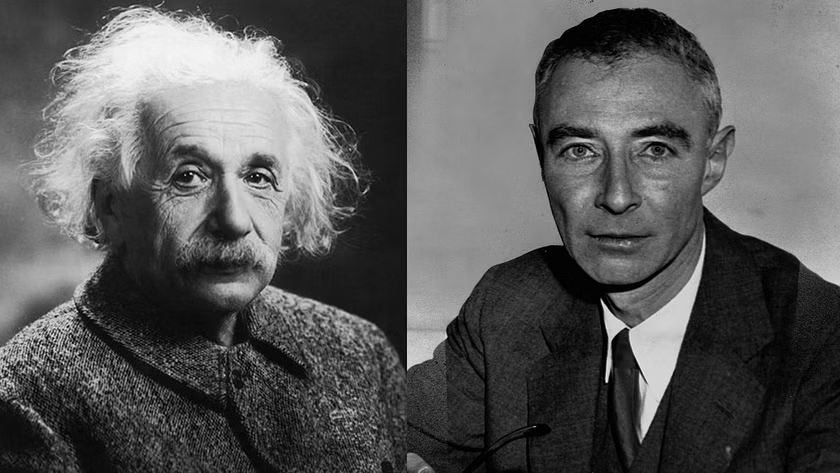
The Einstein-Oppenheimer Connection: The Influential Collaboration Between Two Legendary Scientists
By Adedayo Oyetoke, Published on: July 21st 2023 4 min, 627 word Views: 1161
In the annals of scientific history, few names shine as brightly as those of Albert Einstein and J. Robert Oppenheimer. Each, in their own right, made significant contributions that forever changed our understanding of the universe. But what is often overlooked is the profound connection between these two intellectual giants, a connection that was not only personal but also deeply influential in shaping the course of 20th-century science. This is the story of the Einstein-Oppenheimer connection, a tale of collaboration, mutual respect, and shared vision.
Albert Einstein, the German-born theoretical physicist, needs little introduction. His theory of relativity revolutionized our understanding of space, time, and gravity. J. Robert Oppenheimer, an American theoretical physicist, is best known as the scientific director of the Manhattan Project, which led to the development of the atomic bomb during World War II. Both were extraordinary scientists, but their paths crossed in a way that had profound implications for both their personal lives and their scientific careers.
Their connection began in the 1930s, when Oppenheimer, a young and ambitious physicist, sought to understand the complexities of Einstein's theory of relativity. Einstein, already a renowned scientist, became a mentor to Oppenheimer, guiding him through the labyrinthine intricacies of his groundbreaking theory. This mentorship was the foundation of a relationship that would evolve into a lifelong friendship and collaboration.
Einstein's influence on Oppenheimer was profound. It was under Einstein's guidance that Oppenheimer began to develop his own theoretical insights, which would later play a crucial role in the development of the atomic bomb. But the influence was not one-sided. Oppenheimer's work, particularly his contributions to quantum mechanics, also had a significant impact on Einstein. Despite Einstein's famous quote, "God does not play dice with the universe," expressing his discomfort with the inherent uncertainty of quantum mechanics, he found Oppenheimer's work in the field compelling and thought-provoking.
Their collaboration reached its zenith during World War II. Einstein, a pacifist, had initially been reluctant to involve himself in the development of a weapon of mass destruction. However, faced with the threat of Nazi Germany developing an atomic bomb, he penned a letter to President Franklin D. Roosevelt urging the United States to pursue its own atomic research. This letter, often referred to as the Einstein-Szilard letter, was a turning point in the history of the atomic age.
Oppenheimer, as the scientific director of the Manhattan Project, was tasked with turning Einstein's theoretical insights into a practical, functioning weapon. Despite the ethical dilemmas this posed, Oppenheimer was driven by a sense of duty to his country and the world. The successful development and testing of the atomic bomb in 1945 was a testament to the power of their collaboration.
In the post-war years, their relationship took on a new dimension. Both Einstein and Oppenheimer became vocal advocates for the peaceful use of atomic energy and the control of nuclear weapons. They used their influence to promote a vision of science as a force for good, a tool to improve human life rather than destroy it.
The Einstein-Oppenheimer connection is a powerful testament to the power of collaboration in science. Their shared journey, from mentorship to collaboration to advocacy, is a reminder of the profound impact that relationships can have on scientific progress. It is a story of two minds, each brilliant in its own right, coming together to shape the course of history.
The Einstein-Oppenheimer connection is a fascinating chapter in the history of science. It is a story of mutual respect, shared vision, and profound influence. It is a reminder that science is not a solitary endeavor, but a collaborative journey. As we continue to push the boundaries of knowledge, let us remember the power of collaboration, the importance of mentorship, and the transformative potential of shared vision.
